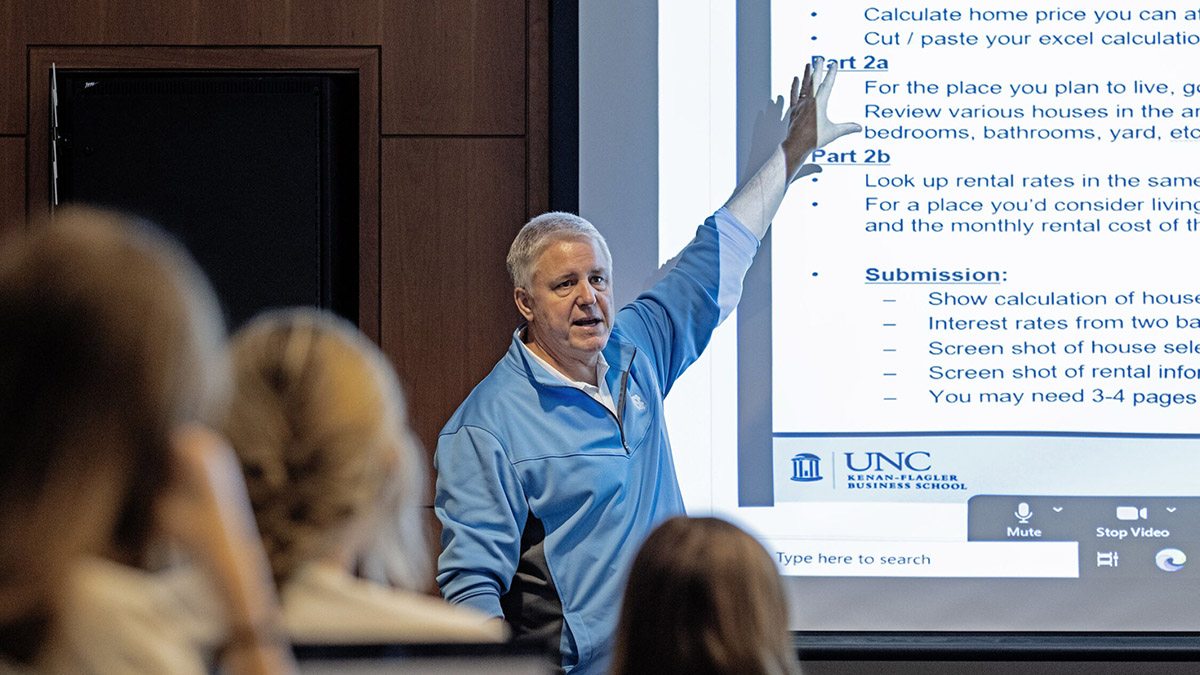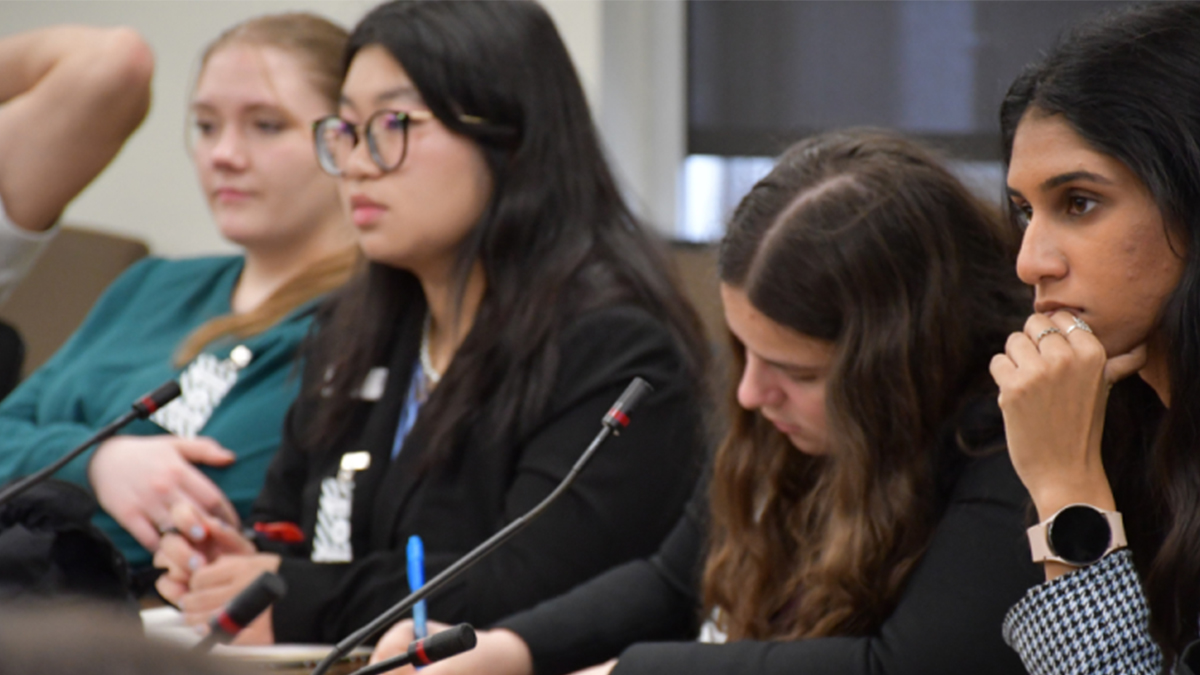Personal finance class a hit with students, parents
Business school professor Chip Snively designed the practical course on savings, investing and budgeting.

Chip Snively has taught finance courses to undergraduate business majors and MBA students since he joined UNC Kenan-Flagler Business School in 2011.
Snively, who says his move from the corporate world to academia was the best move he could have made, sees his job as helping students realize their greatest potential.
Now UNC Kenan-Flagler is sharing his expertise and passion for teaching with even more students: Snively is teaching a new personal finance class for nonbusiness majors.
“Business is like English: every student needs to learn about it,” says Dean Mary Margaret Frank, who changed her Carolina major from art history to business because she knew she needed a business foundation to realize her dream of starting an art gallery. “Whatever field you plan to go into, business affects your life, work and community.”
The personal finance class grew out of parents’ desire for Carolina to develop students’ financial literacy and the University’s search for ways to raise the social mobility of first-generation college students, says Abigail Panter, senior associate dean for undergraduate education.
“There is nothing like a solid course with a syllabus and formalized education that makes sure all the pieces are there,” says Panter. “There is no match for such a course.”
Dr. Perrin Jones, an anesthesiologist and University Board of Trustees member, also strongly supported the development of a personal finance course.
“My thought was that it would be good for students to know how to manage their finances as early as possible, to minimize some of the debt that they will have when they graduate. That could impact whether they take out a loan or if they get a job while they were in school,” he says.
Devising a plan for personal finance
Since Snively was already teaching a personal finance class for business students, he was the logical choice for the new class. He spent six months designing the course, thinking about how he could best deliver one of the most practical courses the students would ever take.
Students learn about savings, investing and budgeting. For their final project, each student devises a five-year financial plan, which requires thinking about their post-undergraduate life. They decide where they will be working and living, the income they will be earning, other sources of income and the type of lifestyle they expect to have. To round out the final project, the student sets five financial goals, considers budget and forecasting, and risks and concerns.
Snively takes a realistic approach to personal finance.
“You’re not going to walk out of here and be Warren Buffett,” he tells students. “But I want to move you to being intellectually curious about these things. Whether you’re a Russian history, econ, journalism or chemistry major, all of this is relevant for you when you leave here. Actually, it’s relevant now.”
The first time he taught three sections of 45 students each in the fall and spring semesters. By year’s end, he had taught about 270 students. Offerings of the course have expanded and will reach about 650 students this year and about 1,200 next year and might incorporate options for University staff.
Ideally, every Carolina student would take the elective and plans are to tie it to general education courses, says Panter. Students’ emails convey they are grateful for what they are learning, lessons they expect to use forever. Parents are thrilled, too.
“It’s a gift for the University that we have an outstanding professor like Chip with decades of experience, to teach our students,” Panter says. “This course is a special pearl.”







